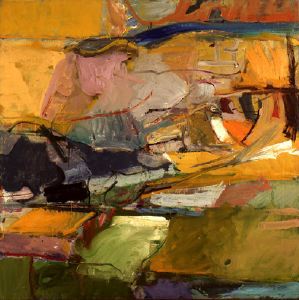I speak now to the audience in your head
not the voice that reads this line
(nor the voice that speaks alongside it)
but instead to the part of you
that observes the voice,
(hush now)
watch the unfolding theater:
here is an excursion of the artist into war
from the safety of the mind’s constructs
(you will not have to take a stance)
so you, the observer,
have assurances
double indemnity
Pina choreographs the performers
writhing masterfully among the corpses
wrap flesh around their toes
to raise on point
(incongruous)
upon a beach invaded
by the long dead
(whale song)
marching to the sacred shrine
(come away)
the listening shores rebound
hand-held spotlight illuminates
an iron triangle against the
politics of a graffiti sky
jagged edges slice the dancers
(to operatic pleas)
she stands alone
undulating arms
(come away)
frenetic, kinetic shapes
haunt in liminal space
(collapsing)
consume your ideas,
bury your children
confront the psychology of obstacles
strewn across a room within a world,
a café, a memory, a drama
(inextricable motion)
painting your psyche,
(behind the fourth wall)
bid the virtues,
bid the graces
(come)
daughters of art
cry your overflowing river of dust
a rite of spring granting muddied feet
to reclaim the earth of this stage
incursions into our perspectives
wormholes to exquisite pain
(as I write to you)
of this excursion
of the artist
into war
we close the door (castaways)
seaweed tossed by the storm
mimicking the dance
emotive intensity whirls
in the roar
violent intent permeates Nature,
from whom we learn not
seeing with closed eyes
you hear my voice, your voice,
the observer draws horrific pictures
for your inner sight
you travel, exploring this interior
view of war
at a remove that fans out
like a house of mirrors
dancers mime
(terror)
(exhaustion)
(bloodlust)
death







